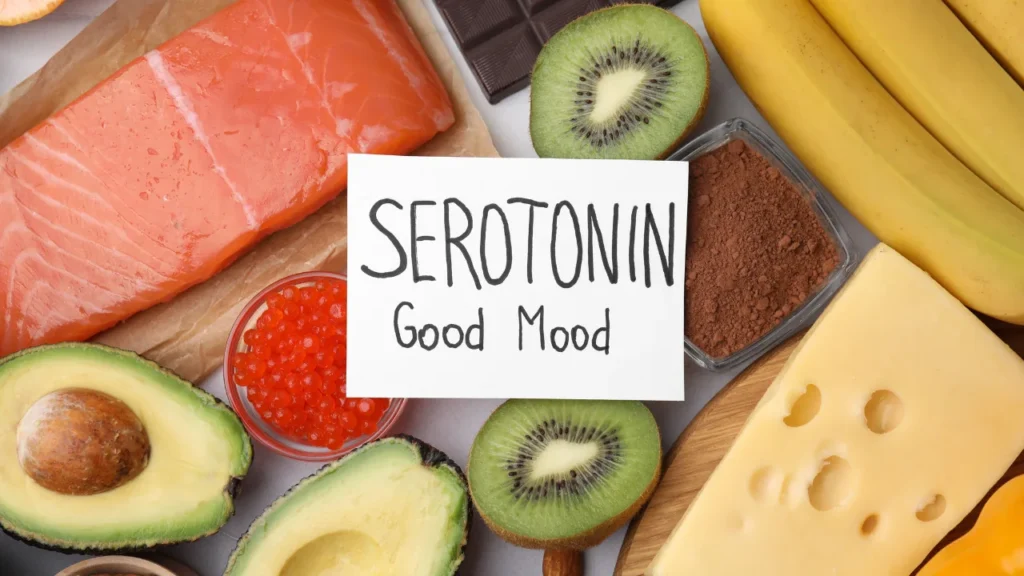Perilla (Perilla frutescens), a member of the mint family (Lamiaceae), is a plant native to East Asia, traditionally used in Japanese, Korean, and Chinese medicine for its potential health benefits. In recent years, perilla has gained attention as a supplement, specifically for its potential nootropic properties, which are associated with enhanced cognitive function and mental clarity. Perilla contains bioactive compounds like rosmarinic acid, luteolin, and perilla aldehyde, which may influence mental health and cognitive performance through their antioxidant, anti-inflammatory, and neuroprotective effects. This article explores the source, chemistry, and physiological mechanisms of perilla’s effects on the body and brain. It details the recommended dosage, potential side effects, interactions, and usage considerations for its potential role as a nootropic supplement.
You May Also Like:
Pareira: Potential Nootropic Benefits, Dosage, Side Effects, Interactions, and Other Important Information About This Supplement
Perilla: Potential Nootropic Benefits, Dosage, Side Effects, Interactions, and Other Important Information About This Supplement is an original (NootropicsPlanet) article.
Source of Perilla
Perilla is a versatile herb commonly grown in East Asia, with varieties distinguished by their unique flavor profiles and health applications. The leaves, seeds, and oil of the perilla plant are all used in supplements and traditional medicine, with each part offering different concentrations of bioactive compounds:
- Perilla Leaves: The leaves contain high levels of rosmarinic acid and flavonoids, compounds with antioxidant and anti-inflammatory effects that may benefit brain function.
- Perilla Seeds: Perilla seeds are rich in perilla oil, which is an excellent source of alpha-linolenic acid (ALA), an omega-3 fatty acid that supports cognitive function and mental health by reducing inflammation in the brain.
- Perilla Oil: Extracted from the seeds, perilla oil is a valuable dietary source of ALA, known to convert to EPA (eicosapentaenoic acid) and DHA (docosahexaenoic acid) in the body, supporting cellular function and possibly improving cognitive abilities.
Traditionally, perilla has been consumed in soups, salads, herbal teas, and as an essential oil. Its growing popularity as a supplement has made it widely available in capsule, powder, and oil forms, allowing convenient daily intake for potential cognitive benefits.

Chemistry of Perilla
The cognitive and health benefits of perilla are largely attributed to its rich content of bioactive compounds, including polyphenols, terpenoids, and essential fatty acids. The following are the key compounds that contribute to perilla’s nootropic effects:
- Rosmarinic Acid: A polyphenolic compound, rosmarinic acid has been found to cross the blood-brain barrier. It acts as an antioxidant and neuroprotectant by neutralizing free radicals and reducing oxidative stress, which is linked to cognitive decline.
- Luteolin: This flavonoid has anti-inflammatory properties and has shown neuroprotective effects in preclinical studies. Luteolin may modulate immune responses in the brain, thus supporting a healthy cognitive environment.
- Perilla Aldehyde: Found in perilla oil, perilla aldehyde is a potent anti-inflammatory compound that reduces inflammatory markers like tumor necrosis factor-alpha (TNF-α) and interleukin-6 (IL-6), potentially mitigating inflammation-related cognitive impairment.
- Alpha-Linolenic Acid (ALA): ALA, an essential fatty acid found in perilla seeds, is converted in the body into EPA and DHA. These are essential for brain health, supporting cell membrane structure and function, and potentially reducing cognitive decline with age.

Physiological Mechanisms of Perilla in the Body and Brain
Perilla acts on several physiological pathways, enhancing its potential for cognitive benefits:
- Antioxidant Defense: Rosmarinic acid in the perilla acts as a powerful antioxidant, which reduces oxidative stress in the brain. This process is essential for protecting neurons from damage caused by reactive oxygen species (ROS), which have been implicated in cognitive decline and neurodegenerative conditions.
- Anti-Inflammatory Pathways: Chronic inflammation is known to contribute to cognitive impairment. Luteolin and perilla aldehyde in perilla act to reduce inflammation by modulating inflammatory cytokines, offering neuroprotection and potentially improving cognitive clarity in individuals prone to inflammation-induced mental fatigue.
- Omega-3 Fatty Acid Synthesis: The ALA in perilla oil is converted to DHA and EPA, which are essential for brain structure and function. DHA, in particular, is vital for synaptic plasticity, the basis for learning and memory, and may aid in mood stabilization by supporting neurotransmitter function.
- Neurotransmitter Modulation: Preliminary studies suggest that perilla’s active compounds, including serotonin and dopamine, may influence neurotransmitter levels. This effect may result in improved mood regulation, stress reduction, and enhanced focus, which are beneficial for cognitive performance.

Nootropic Benefits of Perilla
Perilla’s role as a potential nootropic supplement is supported by several mechanisms that may enhance brain health and cognitive function:
- Cognitive Clarity and Focus: Perilla may help improve focus and mental clarity by reducing oxidative stress and inflammation, especially in individuals with high mental demands. This benefit may be particularly useful for students or professionals who require sustained cognitive performance.
- Mood and Stress Regulation: Perilla’s influence on serotonin and dopamine synthesis may contribute to mood stabilization and stress resilience, reducing anxiety and enhancing cognitive function under stress.
- Memory Support: Through its antioxidant and anti-inflammatory actions, perilla may help protect neurons from age-related decline, which is essential for maintaining memory and learning abilities. Animal studies indicate potential memory-enhancing effects, though further research in humans is warranted.
- Neuroprotection: The neuroprotective properties of rosmarinic acid and luteolin support cognitive health by preventing cellular damage. Regular intake of perilla may, therefore, serve as a preventive measure against neurodegenerative conditions like Alzheimer’s disease.

Dosage and Supplementation Guidelines
While no standard dosage for perilla as a nootropic has been established, research offers some guidelines for safe and effective use:
- General Nootropic Dosage: For cognitive enhancement, doses between 300 and 500 mg of perilla leaf or seed extract daily are commonly used. This range is based on studies evaluating cognitive and anti-inflammatory effects, but individual needs may vary.
- Omega-3 Dosage via Perilla Oil: To achieve omega-3 benefits, 1,000 mg of perilla oil daily provides a sufficient amount of ALA, which can contribute to improved mental clarity and memory. Perilla oil capsules are a convenient form for consistent intake.
- Supplement Forms: Perilla is available in various supplement forms, including capsules, powders, and oils. Those seeking cognitive benefits should opt for high-quality perilla leaf extract or oil, as these contain higher concentrations of bioactive compounds like rosmarinic acid and ALA.

Side Effects and Safety
Perilla is generally safe for most individuals when taken at recommended doses. However, some side effects and cautions are worth noting:
- Gastrointestinal Upset: Mild gastrointestinal symptoms, such as nausea or abdominal discomfort, may occur, especially in individuals unaccustomed to herbal supplements. Gradually increasing the dose can help minimize these symptoms.
- Allergic Reactions: Rarely, some individuals may experience allergic reactions to perilla, including skin rashes or respiratory symptoms. Individuals with known plant allergies should exercise caution, especially to mint family members.
- Bleeding Risks: Perilla oil may have mild blood-thinning effects due to its high ALA content. Those with bleeding disorders or individuals taking anticoagulants should consult a healthcare provider before using perilla supplements.
- Photosensitivity: There is limited evidence that perilla may increase photosensitivity. Individuals sensitive to sunlight or those with skin conditions should monitor their skin reactions when taking perilla.
Interactions with Other Supplements and Medications
Perilla may interact with certain medications and supplements, requiring careful consideration for safe use:
- Anticoagulants and NSAIDs: Perilla oil’s blood-thinning properties may enhance the effects of anticoagulant medications (e.g., warfarin) and non-steroidal anti-inflammatory drugs (NSAIDs). This interaction could increase the risk of bleeding.
- Anti-Inflammatory Supplements: Perilla’s combined use with other anti-inflammatory supplements, such as curcumin or omega-3 fish oil, may have additive effects. While beneficial for reducing inflammation, excessive anti-inflammatory activity could lead to digestive discomfort or immune suppression.
- Antidepressants: Perilla’s influence on serotonin levels suggests potential interactions with selective serotonin reuptake inhibitors (SSRIs) and monoamine oxidase inhibitors (MAOIs). Consult a healthcare provider before combining perilla with any antidepressant medications.
- Cognitive Enhancers: When combined with other nootropics, such as ginkgo biloba or bacopa monnieri, perilla may offer synergistic cognitive benefits. However, excessive use of nootropics can overstimulate the brain, potentially leading to headaches, nervousness, or insomnia.
Risks for Individuals with Certain Health Conditions
While perilla is generally safe, individuals with certain health conditions should consult a healthcare provider before use:
- Liver Disease: Perilla is metabolized by the liver, and high doses may pose a burden for those with liver disease. Individuals with liver conditions should avoid high dosages of perilla unless supervised by a healthcare provider.
- Pregnancy and Breastfeeding: Limited research exists on the effects of perilla during pregnancy and breastfeeding. Until further studies are available, pregnant or breastfeeding women should avoid perilla supplements.
- Autoimmune Conditions: Perilla’s immune-modulating properties could theoretically interfere with autoimmune conditions, which may influence immune response. Those with autoimmune diseases should seek medical guidance before use.

Conclusion:
Should You Consider Perilla as a Nootropic?
With its antioxidant, anti-inflammatory, and neuroprotective compounds, perilla presents promising potential as a nootropic supplement. Its bioactive compounds, such as rosmarinic acid, luteolin, and ALA, offer specific cognitive benefits, including improved memory, mental clarity, and neuroprotection. While it is not a substitute for a balanced diet or healthy lifestyle, perilla may provide added support for cognitive health, particularly in individuals facing high cognitive demands or stress.
However, as research on perilla’s nootropic effects is still in its infancy, it is advisable to use it cautiously, especially when considering potential interactions with medications and supplements. Individuals with specific health conditions or those on medications should consult a healthcare provider before incorporating perilla into their routine. Through responsible usage and understanding of its bioactive components, perilla may be a valuable addition to a nootropic regimen, supporting overall brain health and mental well-being.

References:
- Perilla – Uses, Side Effects, and More. Retrieved from: https://www.webmd.com/vitamins/ai/ingredientmono-477/perilla
- Perilla frutescens: A Rich Source of Pharmacological Active Compounds. Retrieved from: https://pmc.ncbi.nlm.nih.gov/articles/PMC9182122/
- Perilla Seed Oil Enhances Cognitive Function and Mental Health in Healthy Elderly Japanese Individuals by Enhancing the Biological Antioxidant Potential. Retrieved from: https://www.mdpi.com/2304-8158/10/5/1130
- Improved spatial learning and memory by perilla diet is correlated with immunoreactivities to neurofilament and α-synuclein in hilus of dentate gyrus. Retrieved from: https://proteomesci.biomedcentral.com/articles/10.1186/1477-5956-10-72
Important Note: The information contained in this article is for general informational purposes only, and should not be construed as health or medical advice, nor is it intended to diagnose, prevent, treat, or cure any disease or health condition. Before embarking on any diet, fitness regimen, or program of nutritional supplementation, it is advisable to consult your healthcare professional in order to determine its safety and probable efficacy in terms of your individual state of health.
Regarding Nutritional Supplements Or Other Non-Prescription Health Products: If any nutritional supplements or other non-prescription health products are mentioned in the foregoing article, any claims or statements made about them have not been evaluated by the U.S. Food and Drug Administration, and such nutritional supplements or other health products are not intended to diagnose, treat, cure, or prevent any disease.


